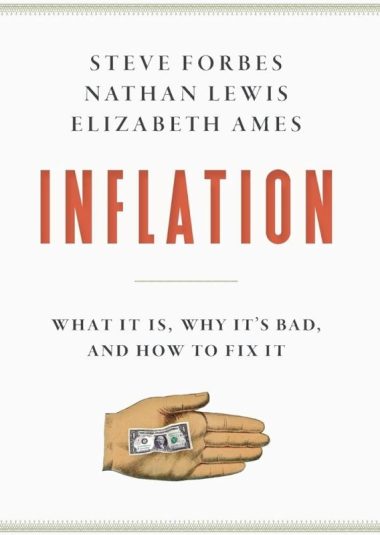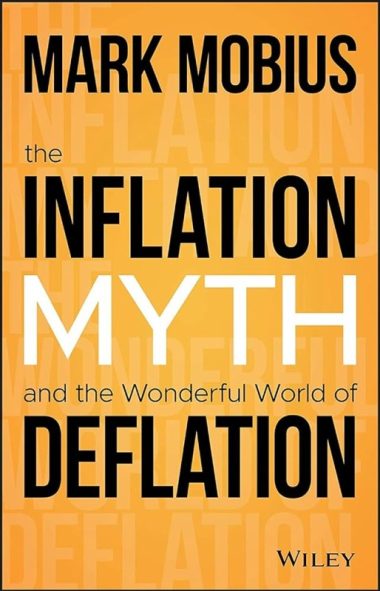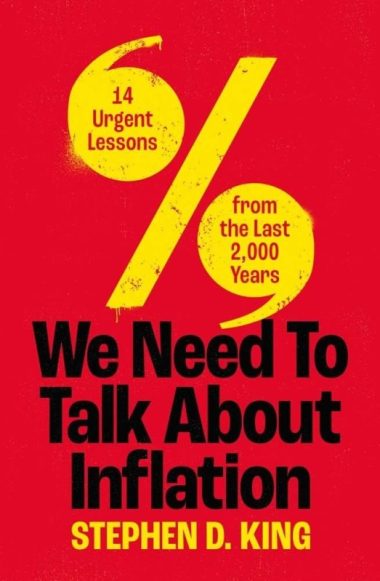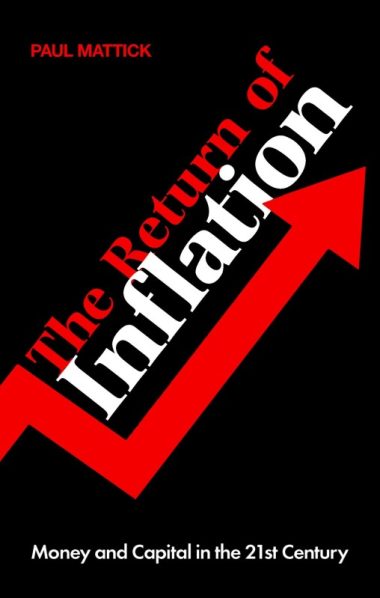Ever wondered why the prices of commodities keep rising? In the realm of commerce, the change of prices is a constant. However, when the prices of a multitude of goods and services rise collectively, a phenomenon known as inflation emerges. If you feel like your money doesn’t stretch as far as it used to, that’s the erosion of currency value over time that we call inflation. But here is the twist – even when inflation is slowing down, prices aren’t necessarily falling; but rather, increasing at a slower pace.
Recent times have witnessed a noteworthy shift in economic discourse, marked by a renewed concern over inflation. After a prolonged period of perplexity surrounding persistently low inflation, the onset of the COVID-19 pandemic instigated a substantial departure, introducing an era characterized by stubbornly high inflation. This surge in prices is linked to various factors.
These factors for the inflationary trend can be interpreted along the lines of supply and demand. On the supply side, disruptions stemming from COVID-19, such as logistical challenges and workforce shortages, converged with spikes in energy and food prices induced by geopolitical events, notably the Russian invasion of Ukraine.
Simultaneously, on the demand side, substantial financial injections into households and enterprises by governments during the pandemic aimed at mitigating the impacts of lockdowns and layoffs resulted in an increased money supply, potentially contributing to the inflationary surge.
This economic shift, has exacerbated financial burden as a result of pivotal commodities experiencing substantial price increments—such as housing, energy, and food, particularly for those whose income has not kept pace with inflation. In many countries around the world, peaking inflation had threatened governments with social unrest, noteably in Sri Lanka ,Pakistan and numerous countries in Latin America, as well as protests in relatively high income countries like the U.K.
As inflation persists, in this month’s book bundle we examine books that demystify inflation, delve into unexplored trends, address common policy mishaps, and offer solutions to aid both policymakers and citizens to sustainably navigate these seemingly precarious times.
Inflation: What It Is, Why It’s Bad, and How to Fix It unravels the complexities of the most significant inflationary upheaval in over four decades, a phenomenon that has gripped headlines and left many grappling with the tangible impacts on their finances. Against the backdrop of the cost-of-living surge triggered by the COVID pandemic, the book sounds the alarm about the potential resurgence of a “Great Inflation,” with some observers expressing concerns of an even more ominous descent into hyperinflation that has historically devastated nations.
In response, the authors, Steve Forbes, Nathan Lewis, and Elizabeth Ames, engage readers in a captivating discussion that not only answers pressing questions but also charts a course for preparing for an uncertain future.
The authors draw on their expertise—Forbes as the chairman of Forbes Media, Lewis as an internationally recognized authority on money and taxation, and Ames as an accomplished author and journalist—to challenge prevailing misperceptions that have contributed to the current crisis.
They confront the widely held belief that central banks can spur prosperity by conjuring money “out of thin air” and debunk the notion that a certain level of economic “stability” necessitates “a little inflation.” These ideas, treated as sacrosanct in Washington for decades, are scrutinized in detail in Inflation exposing why they are flawed and how they have fueled the existing challenges.
The book critically examines the heedless money-printing and underscores the perilous path such policies could lead us down. Through a compelling blend of examples drawn from contemporary headlines and historical episodes, Inflation offers a real-world exploration of the subject, directly addressing the everyday concerns of individuals dealing with the tangible consequences of rising prices. Moreover, the authors provide practical steps that readers can take to protect their wealth.
Steve Forbes, Nathan Lewis, and Elizabeth Ames, Inflation: What It Is, Why It’s Bad, and How to Fix It (Encounter Books, 2022) ISBN: 9781641772433, 196 pages
In The Inflation Myth and the Wonderful World of Deflation, Mark Mobius embarks on a journey that might just prove everything we conventionally know about inflation wrong, presenting a thought-provoking narrative that questions the very foundations of our economic understanding.
In a world marked by rapid technological advancements, Mobius contends that our traditional metrics for measuring inflation are no longer adequate, urging readers to reconsider long-held beliefs about the economic phenomenon.
Mobius explorates of the shifting landscape of technological innovation driving the creation of cheaper and superior products. The heart of his argument lies in the assertion that these transformative changes are not accurately reflected in the ways we currently measure inflation. The book boldly contends that our contemporary understanding of inflation is nothing short of a myth.
One of the book’s standout features is its illumination of the political dimensions of inflation measurement. Mobius exposes the unsettling reality of governments manipulating and exploiting inflation figures to align with their economic agendas. He delves into the extreme challenges involved in gathering accurate data for inflation measurement, highlighting the inherent inaccuracies that result from these endeavors.
A crucial point of contention raised by Mobius is the fallacy of relying on currencies as a measure of inflation when these very currencies are continually being debased by the governments that issue them. This revelation challenges readers to reconsider the reliability of traditional economic indicators and prompts a deeper examination of the intricate relationship between currency devaluation and inflation.
Most significantly, Mobius underscores the impact of technological advancements and automation on the continuously falling costs of goods and services. The book articulates how these advances contribute to a deflationary trend, contrary to the prevailing narrative of perpetual inflation. Through compelling arguments and well-supported evidence, Mobius encourages readers to recognize the transformative power of technology in reshaping our economic landscape.
Mark Mobius, The Inflation Myth and the Wonderful World of Deflation (Wiley, 2020) ISBN: 978-1-119-74142-8, 256 Pages
Another important myth-busting source is We Need to Talk About Inflation: 14 Urgent Lessons from the Last 2,000 Years. In the book, economist Stephen D. King delivers a compelling exploration of the resurgence of inflation, exposing the desperate gullibility of central bankers, finance ministers, and the collective failure to learn from historical lessons. The book dismantles the widespread assumption that inflation was a relic of the past, revealing a new economic reality that threatens to exacerbate wealth inequality on a global scale.
In a world where investors, monetary authorities, governments, and policy makers had collectively believed inflation to be a thing of the past, King highlights the startling emergence of a poisonous economic reality. This new reality brings with it the ominous specter of increasing wealth inequality, forcing individuals worldwide to confront the profound implications of this unforeseen turn of events.
King, having been among the few to sound the alarm ahead of the latest inflationary upheaval, delves into the roots of the current situation. We Need to Talk About Inflation becomes a beacon, shedding light on the key lessons from history that policy makers either ignored or chose not to heed. From the days of ancient Rome through the American Civil War and up to the asset bubbles of today, King traces the common threads of inflation, attributing its resurgence to policy errors, sovereign greed, and a collective loss of faith in currencies.
The book stands as a sobering reminder that the economic challenges we face today are not unprecedented; they are deeply rooted in a historical continuum of bad judgment and misunderstanding. We Need to Talk About Inflation serves as a crucial intervention, cutting through centuries of oversight and misinformation to offer actionable insights that can be implemented now.
Stephen D. King, We Need to Talk About Inflation: 14 Urgent Lessons from the Last 2,000 Years (Yale University Press, 2023) ISBN: 9780300270471, 240 pages
Paul Mattick’s The Return of Inflation: Money and Capital in the 21st Century emerges as both a historical retrospective and a contemporary analysis, offering a profound examination of what is undeniably the defining economic concern of our time.
Mattick’s work delves into the surprise surge in price increases. Amidst the varying perspectives on the current economic landscape, there is unanimous agreement on one aspect: the imperative to curb inflation, even if the methods to achieve this goal are a subject of contention.
The Return of Inflation distinguishes itself by placing contemporary events within the broader context of capitalism’s history. Mattick skillfully entwines the past and the present, providing readers with a comprehensive understanding of the economic forces at play. An exploration into the nature of money serves as a foundational element of the book, offering readers a concise and jargon-free grasp of recent inflation trends and the strategies implemented to manage them.
What sets this book apart is its ability to demystify the complexities surrounding inflation. Mattick takes the reader on a journey through the historical antecedents of inflation, shedding light on the evolving dynamics of the economy. Through this lens, the book illuminates the state of our contemporary economic landscape, offering insights that bridge the gap between past and present.
Mattick’s insightful exploration provides a nuanced perspective on the current economic challenges and offers a valuable resource for those seeking clarity on the defining economic concern of our time.
Paul Mattick, The Return of Inflation: Money and Capital in the 21st Century (Reaktion Books, 2023) ISBN: 9781789147919, 184 pages
Recommended









